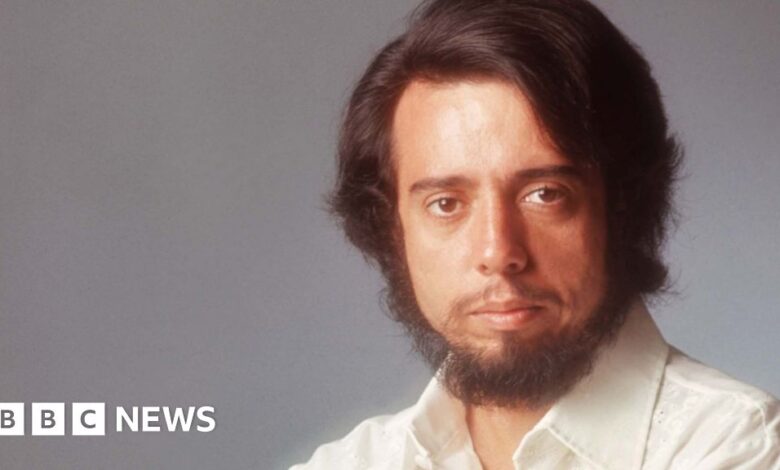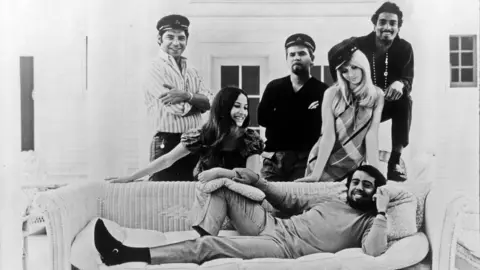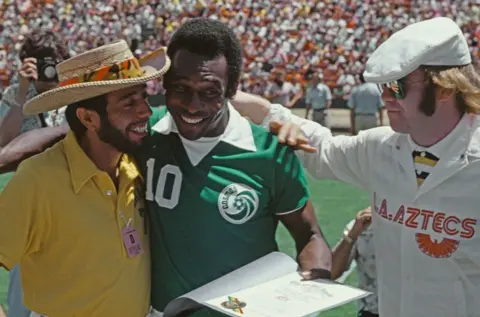Bossa nova legend Sergio Mendes passes away

 Getty Images
Getty ImagesBrazilian musician Sérgio Mendes, who helped popularize bossa nova and samba to Western audiences, has died at the age of 83, his family has confirmed.
The bandleader and songwriter is best known for his upbeat Latin pop hit Mas Que Nada, and for bringing a Brazilian influence to English-language songs such as The Beatles’ The Look Of Love and The Fool On The Hill.
Mendes has recorded more than 35 albums, many of which have been certified gold or platinum in the United States; and was nominated for an Academy Award in 2012 for co-writing the song Real in Rio from the animated film Rio.
A statement from his family said Mendes “passed away peacefully” on Thursday in Los Angeles, surrounded by his wife and children.
An official cause of death was not given, however the family said Mendes had been suffering from long Covid and the musician was known to have suffered from respiratory problems since late 2023.
A family statement said Mendes “brought the joyful sounds of his native Brazil to the world”.
“Mendes last performed in November 2023 at sold-out, wildly popular shows in Paris, London and Barcelona.
“Over the past few months, his health has been affected by the effects of prolonged COVID.”
The statement ended by saying Mendes “leaves us an incredible musical legacy with over six decades of unique sound”.
Suntan Shots
The son of a physician, Mendes was born in Niteroi, Brazil and initially studied classical piano with the intention of becoming a concert pianist.
But his life changed in 1956 when he heard his first jazz record, Take Five by American musician Dave Brubeck, and gave up his studies.
“For me, it was like, I would say, one of the most amazing moments of my life,” he told US radio station NPR in 2014“Because when I heard that, I didn’t know anything about jazz or anything.”

He started playing in nightclubs in Rio de Janeiro, right around the time the bossa nova craze exploded – and became immersed in the genre, alongside other famous artists such as Antonio Carlos Jobim and João Gilberto.
His first recording, Dance Moderno, was released in 1961 on Philips Records.
Three years later, he left Brazil for the United States to escape military dictatorship — but it wasn’t an easy transition.
The members of his Brazilian band returned home, forcing Mendes to form a new group. This group, called Brasil ’66, included two American singers, Lani Hall and Karen Philip.
Signed to A&M Records, they found a winning formula – jazz versions of popular Brazilian songs coupled with samba versions of the hits of the day.
They scored their first major hit with My Name Is NadaA sunny cover of an original song by Jorge Ben, full of finger tapping, swaying, and a lively chorus that expresses a desire to dance.
Mendes later recalled that “there was something magical about that hymn”. “Everybody loved that song – everywhere in the world”.
It was the first Portuguese song to become a global hit; and sent Brasil ’66’s self-titled debut album into the top 10 of the US charts.
 Getty Images
Getty ImagesLater recordings saw Mendes perfecting his fusion of Western melodies and Brazilian rhythms, including Simon & Garfunkel’s Scarborough Fair and Otis Redding’s (Sittin’ On) The Dock Of The Bay.
When he covered The Beatles song Fool on the Hill On the 1967 album Look Around, Paul McCartney wrote Mendes a letter, saying that it was his favorite version of the song.
Although his music was considered “easy listening” at the time, he was extremely popular, touring arenas and performing at the White House for presidents Lyndon B. Johnson and Richard Nixon.
He was a frequent guest on television shows alongside artists such as Perry Como, Jerry Lewis, Fred Astaire and Frank Sinatra, with whom he developed close friendships.
In the 1970s he reformed his band as Brasil ’77, but his commercial career waned until his 1983 comeback album, Sergio Mendes, brought him the biggest hit of his career – a cover of the Dionne Warwick classic never let you go
This success came by accident, as Mendes only added the song to his repertoire at the last minute.
“All the other songs on the album are upbeat and fun. I needed a ballad on the album, just to change the pace a little bit,” he shared in an interview for The Billboard Book of No. 1 Adult Contemporary Hits.
 Getty Images
Getty ImagesIn 1992, he won a Grammy for the album Brasileiro, which featured several collaborations with the young percussionist and singer Carlinhos Brown – now one of Brazil’s most famous musicians.
Among their collaborations are Magalenha – a cheerful song inspired by the powerful sounds of Bahia percussionists on the streets of Rio – quickly became a Latin music standard.
Two decades later, in 2012, the duo received an Oscar nomination for their work on the Rio soundtrack.
 Getty Images
Getty ImagesThe inclusion of the song Mas Que Nada on the Mike Myers Austin Powers soundtrack introduced Mendes to a whole new audience in 1997, and by the turn of the 21st century, most of his earlier songs had been reissued for new fans.
Around the same time, Mendes began incorporating hip-hop elements into his music, collaborating with the Black Eyed Peas on a new version of Mas Que Nada and recording songs with rappers such as Common and Q-Tip.
Mendes also made a cameo appearance in the 24-hour video for Pharrell Williams’ song Happy; and won a lifetime achievement award at the 2005 Latin Grammy Awards.
A film about his life, Sergio Mendes In The Key Of Joy, was released alongside a new album in 2020 – and he continued to perform live until recently, including an appearance at the London Jazz Festival last October.
Summarizing his musical philosophy, Mendes have said:”When I think of Brazilian music, the first words that come to mind are joy, celebration, partying… I think it fits the general spirit of the people.”
The musician is survived by his wife, Gracinha Leporace, who sang on many of his recordings. He also had five children.



